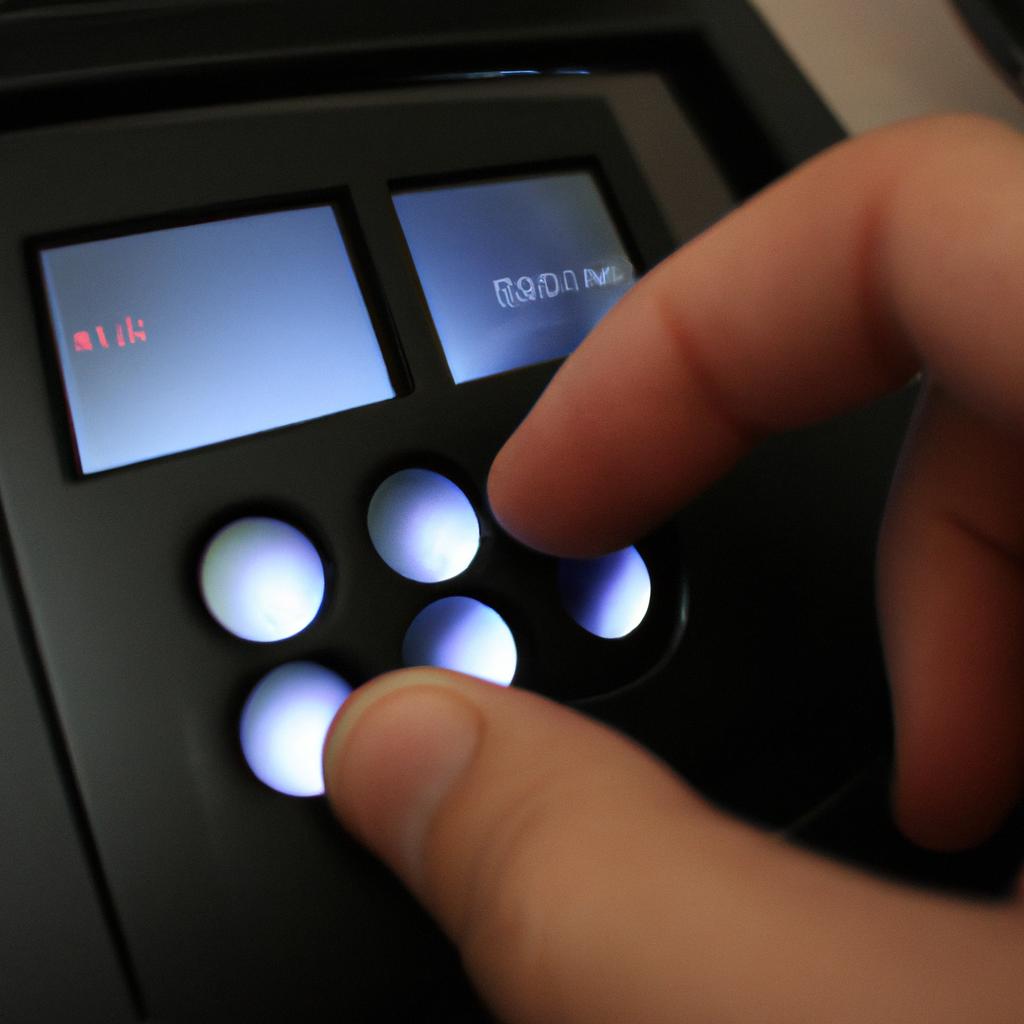PC emulators for mobile apps have become an essential tool in today’s digital landscape. These software applications allow users to run mobile apps on their personal computers, providing a seamless experience that bridges the gap between two distinct platforms. For instance, imagine a scenario where a developer is working on a mobile app and wants to test its performance across various devices without actually owning each one. With the help of PC emulators, this individual can simulate different smartphone environments effortlessly, saving time and resources.
This comprehensive guide aims to explore the world of PC emulators for mobile apps, delving into their functionality, benefits, and limitations. By understanding how these emulators work and what they offer, developers and users alike can make informed decisions when it comes to choosing the most suitable emulator for their specific needs. Additionally, this article will discuss real-world case studies highlighting successful implementations of PC emulators in diverse industries such as gaming, e-commerce, and social media. Through an academic analysis of available options in the market, readers will gain insights into the potential advantages and challenges associated with using PC emulators for mobile app development and testing purposes.
What are PC emulators for mobile apps?
Imagine this scenario: you have a favorite mobile app that you use daily, but one day you find out that it is not available for your computer. Frustrating, isn’t it? This is where PC emulators for mobile apps come into play. These software programs allow users to run and interact with mobile applications on their personal computers.
PC emulators serve as virtual machines that replicate the environment of various smartphone platforms such as Android or iOS. By doing so, they enable users to enjoy all the features and functionalities of their beloved mobile apps without needing an actual smartphone or tablet. In other words, these emulators bridge the gap between the world of mobile devices and desktop computers.
To better understand why PC emulators for mobile apps have become increasingly popular, let’s explore some key advantages they offer:
- Expanded accessibility: Emulators bring mobility to a whole new level by providing access to a wide range of applications previously limited only to smartphones or tablets.
- Enhanced user experience: With larger screens and potentially more powerful hardware, using a PC emulator can enhance the overall usability and enjoyment of mobile apps.
- Efficiency in multitasking: Emulators empower users to simultaneously run multiple apps on their PCs, allowing them to switch seamlessly between different tasks.
- Development and testing convenience: For developers looking to create or test mobile applications, PC emulators provide a convenient platform that allows them to observe and debug code efficiently.
Here’s a quick comparison table showcasing some popular PC emulators used for running mobile apps:
| Emulator | Platform Support | Notable Features |
|---|---|---|
| BlueStacks | Windows | Multi-instance managerGame controls |
| Nox Player | Windows & Mac | Macro recorderRooting capabilities |
| LDPlayer | Windows | Customizable keyboard mapping |
| MEmu Play | Windows | Multiple instances supportGamepad support |
As we can see, PC emulators for mobile apps offer numerous benefits that cater to different user needs. In the upcoming section, we will delve into how these emulators work and explore their underlying mechanisms.
Transitioning to the subsequent section about “How do PC emulators for mobile apps work?”, let’s now explore the inner workings of these software programs.
How do PC emulators for mobile apps work?
Imagine a scenario where you want to use a popular mobile app but do not have access to a smartphone or tablet. In such cases, PC emulators for mobile apps come to the rescue by enabling users to run and interact with mobile applications on their computers. To better understand how these emulators enhance user experience, let’s explore some key aspects of their functionality.
Firstly, PC emulators empower individuals who prefer working on larger screens or find it more comfortable to type using physical keyboards. For instance, consider John, an entrepreneur who frequently uses WhatsApp Business as part of his daily operations. By utilizing a PC emulator like BlueStacks, John can effortlessly manage his business messages using his computer keyboard while simultaneously accessing other essential tools without switching devices constantly.
Moreover, PC emulators offer improved multitasking capabilities that allow users to seamlessly switch between different applications running concurrently. This becomes especially useful when one needs to reference information from multiple sources within various applications simultaneously. With the ability to open multiple instances of an emulator and utilize virtual desktops in operating systems like Windows 10, users can streamline their workflow efficiently.
Additionally, most PC emulators provide enhanced precision and control through mouse interactions. While touchscreens are intuitive for certain tasks, performing fine-grained actions like precise photo editing or navigating complex interfaces can be challenging. By leveraging the accuracy of mouse input on PCs, users gain increased control over mobile apps’ functionalities and enjoy a smoother interaction experience overall.
To further illustrate the benefits of using PC emulators for mobile apps, here is a bullet point list highlighting some advantages:
- Seamless integration with existing workflows
- Enhanced productivity through efficient task management
- Accessible usage for individuals with mobility impairments
- Facilitates collaboration among teams spread across different device ecosystems
Now let’s delve deeper into the topic by exploring specific examples and comparisons in the following table:
| Emulator | Operating System Compatibility | Key Features |
|---|---|---|
| BlueStacks | Windows, macOS | Multi-instance support, gamepad integration |
| Nox Player | Windows, macOS | Macro recording, root access |
| LDPlayer | Windows | Customized settings for gaming performance |
In conclusion, PC emulators for mobile apps provide a range of benefits that enhance user experience and productivity. By offering larger screens, improved multitasking capabilities, and precise control through mouse interactions, these emulators cater to various user preferences and needs.
[Transition sentence] Now let’s explore the numerous benefits that arise from utilizing PC emulators for mobile apps.
Benefits of using PC emulators for mobile apps
Imagine you are a mobile app developer who wants to test your application on multiple devices without the need to own each device individually. A PC emulator for mobile apps can be incredibly beneficial in this scenario, allowing you to simulate different environments and ensure compatibility across various devices. One such example is John, an indie game developer who wants to release his new game simultaneously on both iOS and Android platforms. By using a PC emulator, he can save time and resources by testing his game on virtual devices rather than physical ones.
PC emulators for mobile apps offer several advantages that make them indispensable tools for developers and users alike:
- Cost-effective: Instead of purchasing numerous smartphones or tablets for testing purposes, users can rely on PC emulators to emulate these devices virtually at a fraction of the cost.
- Convenience: With PC emulators, users have the flexibility to switch between different operating systems and screen sizes effortlessly, making it easier to identify any issues related to specific hardware configurations.
- Improved productivity: Emulators allow developers to streamline their workflow by providing features like debugging tools, performance profiling, and easy deployment options.
- Enhanced user experience: By simulating real-world scenarios through various settings (e.g., location-based services), emulators enable developers to assess how their applications perform under different conditions.
To further illustrate the benefits of PC emulators for mobile apps, consider the following table comparing traditional device testing with emulator usage:
| Traditional Device Testing | Using PC Emulator |
|---|---|
| Requires physical access | No physical access required |
| Limited availability | Wide range of virtual devices available 24/7 |
| Potential damage or loss | Zero risk of damaging or losing valuable hardware |
| Time-consuming | Efficient testing process |
In summary, PC emulators for mobile apps provide cost-effectiveness, convenience, improved productivity, and an enhanced user experience. These advantages make them invaluable tools for developers aiming to optimize their applications across multiple platforms without the need for physical devices.
Transitioning into the subsequent section about “Top PC emulators for mobile apps,” let’s explore some of the most popular options available in the market today.
Top PC emulators for mobile apps
Having explored the many benefits of utilizing PC emulators for mobile apps, let us now delve into some of the top options available in the market. By understanding their features and capabilities, you can make an informed decision on which emulator suits your specific needs.
Top PC Emulators for Mobile Apps
To illustrate the effectiveness of these emulators, consider a hypothetical scenario where a developer is working on creating a gaming application optimized for both Android and iOS devices. Utilizing a reliable PC emulator allows them to seamlessly test and debug their app across multiple platforms without requiring physical access to various devices.
When considering the best PC emulator options, keep in mind the following factors:
- Compatibility with different operating systems (Windows, macOS, Linux)
- User-friendly interface and ease of setup
- Performance optimization for resource-intensive applications
- Regular updates and support from developers
To offer a comprehensive overview, below is a comparison table showcasing four popular PC emulators for mobile apps:
| Emulator | Operating System | Interface | Performance Optimization |
|---|---|---|---|
| Bluestacks | Windows | Intuitive | Yes |
| Nox Player | Windows, macOS | Customizable | Yes |
| LDPlayer | Windows | Lightweight | Yes |
| Genymotion | Windows, macOS | Developer-friendly | Yes |
This table provides an at-a-glance summary of each emulator’s key attributes. It is essential to assess these aspects according to your specific requirements before making a final choice.
In order to narrow down your selection further and choose the most suitable PC emulator for your needs, it is crucial to consider several factors. The next section will explore these factors in detail, helping you make an informed decision when selecting a PC emulator for your mobile app development endeavors.
Now let us discuss the important factors to consider when choosing a PC emulator for mobile apps.
Factors to consider when choosing a PC emulator for mobile apps
Transitioning from the previous section, let’s now explore the key factors that should be considered when choosing a PC emulator for mobile apps. To illustrate these factors, we will examine a hypothetical case study of an app developer named Alex.
Case Study: Alex is developing a gaming application targeted at both Android and iOS platforms. As Alex wants to test the performance and compatibility of the game on different devices before releasing it to the market, they decide to use a PC emulator. Let’s delve into some important considerations:
-
Performance: The speed and smoothness of emulation play a crucial role in accurately simulating real-world device experiences. A good emulator should offer high-performance capabilities that can handle resource-intensive tasks without significant lag or slowdowns.
-
Compatibility: Ensuring that your chosen emulator supports all necessary APIs (Application Programming Interfaces) is vital for testing various functionalities within your mobile app. Additionally, verify whether the emulator provides compatibility with specific operating systems, such as Windows, macOS, or Linux.
-
Ease of Use: An intuitive user interface can greatly enhance productivity during development and testing phases. Look for emulators that offer easy installation processes, simple navigation menus, and convenient tools like drag-and-drop functionality or keyboard mapping options.
-
Developer Support & Updates: Regular updates indicate active maintenance by developers and often include bug fixes and feature enhancements. Choosing an emulator backed by reliable support ensures you have access to technical assistance if any issues arise during development.
Consider this table showcasing popular PC emulators used by app developers:
| Emulator | Performance | Compatibility | Ease of Use |
|---|---|---|---|
| Bluestacks | High | Android | Moderate |
| Nox Player | Moderate | Android | High |
| Genymotion | High | Android, iOS | High |
Ultimately, selecting the right PC emulator for mobile app development requires careful evaluation of these factors. By considering performance, compatibility, ease of use, and developer support, developers like Alex can make informed decisions that align with their specific needs.
Transitioning into the subsequent section about optimizing PC emulators for mobile apps, let’s now explore some valuable tips to enhance your emulation experience.
Tips for optimizing PC emulators for mobile apps
Transitioning from the previous section, where we explored the various factors that should be considered when selecting a PC emulator for mobile apps, let us now delve into some essential tips on how to optimize these emulators. To illustrate the significance of optimization in enhancing performance, let’s consider an example scenario:
Imagine you are a developer working on a graphics-intensive mobile game. You have chosen a powerful PC emulator to test and debug your app before its release. However, during testing, you notice significant lag and frame rate drops that hinder gameplay experience. Optimizing your PC emulator can help mitigate such issues and ensure smoother functionality.
To optimize your PC emulator effectively, consider implementing the following strategies:
-
Allocate Sufficient Resources:
- Increase RAM allocation to provide more memory for running the emulator.
- Assign additional CPU cores to enhance processing power.
- Allocate an adequate amount of storage space to accommodate app installations.
-
Enable Hardware Acceleration:
- Utilize hardware virtualization technology (e.g., Intel VT-x or AMD-V) if supported by your system.
- Activate GPU acceleration to offload graphical processing tasks from the CPU.
-
Update Emulator Software:
- Regularly update the PC emulator software to benefit from bug fixes and performance enhancements.
- Install compatible device profiles and system images provided by the emulator developers.
-
Optimize App Settings:
- Adjust screen resolution settings within the emulator based on target devices’ specifications.
- Disable unnecessary features or animations that may strain emulation performance.
In addition to these tips, referring to official documentation and forums dedicated to specific emulators can offer valuable insights and troubleshooting advice tailored to individual needs.
Table Example:
| Optimization Strategies | Benefits |
|---|---|
| Allocate Sufficient Resources | – Improved performance and responsiveness- Reduced lag and frame rate drops |
| Enable Hardware Acceleration | – Enhanced graphical processing capabilities- Efficient CPU utilization |
| Update Emulator Software | – Bug fixes and performance improvements- Compatibility with new features |
| Optimize App Settings | – Adaptability to target devices’ specifications- Streamlined emulation experience |
By following these optimization techniques, developers can ensure that their chosen PC emulator for mobile apps operates at its full potential, replicating the intended user experience more accurately. Remember, optimizing your PC emulator is vital in achieving efficient testing and debugging processes while developing mobile applications.
Note: It is important to highlight that optimization strategies may vary depending on the specific PC emulator being used. Therefore, it is advisable to consult the respective documentation or support channels related to your chosen emulator for further guidance.




